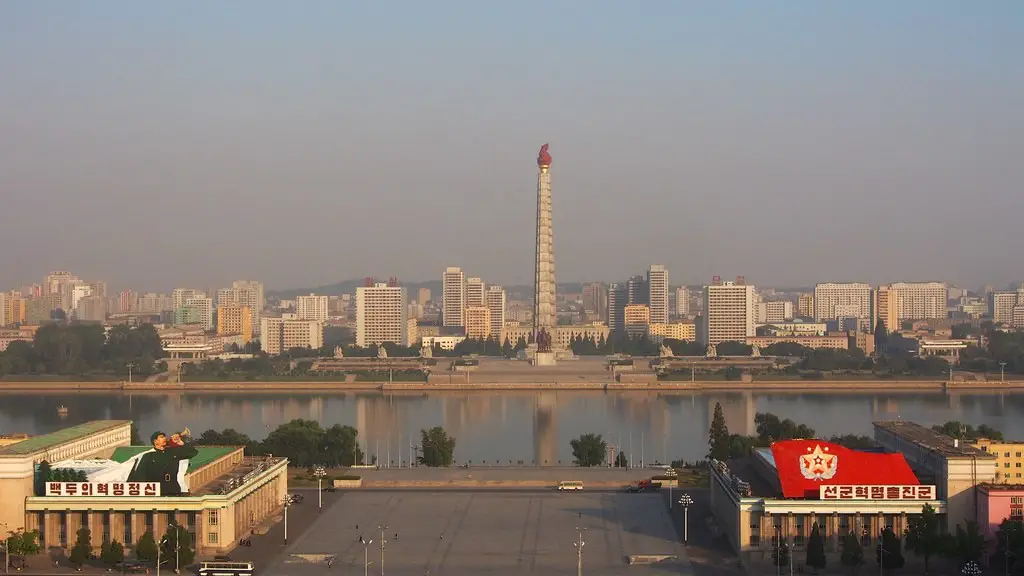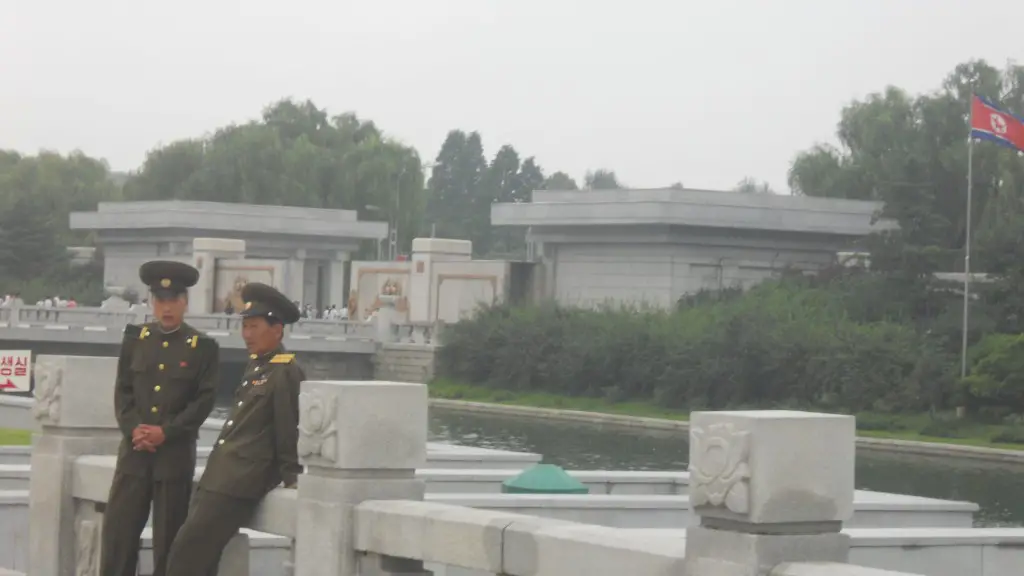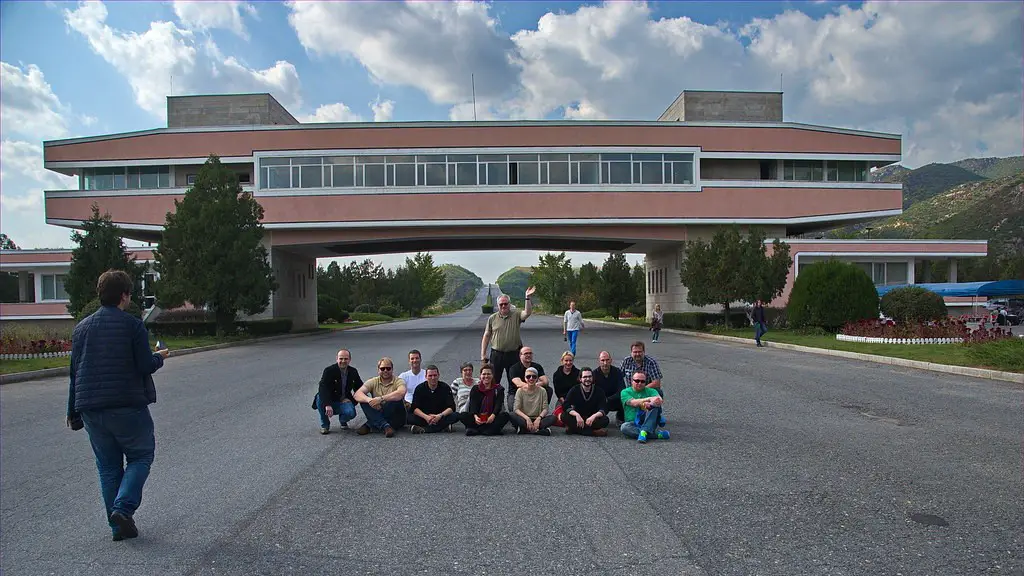Otto Frederick Warmbier was an American college student who traveled to North Korea in January 2016 as a tourist. He was arrested and sentenced to 15 years of hard labor in March 2016. His arrest and trial in North Korea highlighted the dangers of traveling to the isolated nation and sparked an international outcry. Warmbier’s death in June 2017 sparked further uproar, with the U.S. government condemning the country’s human rights record.
Warmbier was a sophomore at the University of Virginia. He’d traveled to North Korea with a tour group from New Jersey-based Young Pioneer Tours. North Korean officials arrested and sentenced him to 15 years of hard labor for allegedly committing “hostile acts” against the government, which included trying to steal a propaganda poster from a hotel. His family said he was coerced into making a confession and forced to sign a document after being held for months in solitary confinement.
The U.S. State Department has consistently warned American citizens not to travel to North Korea, due to the risk of arbitrary detention and interrogation. Warmbier’s arrest and harsh sentence sparked international condemnation, including from the United Nations Human Rights Council which deemed his sentence “unfair, inappropriate and disproportionate.”
After 17 months of detention, Warmbier was released in a coma and flown back to the U.S. in June 2017. He died just a few days later, prompting his family to take legal action against the North Korean government. The family sued the North Korean government for the torture, torture-related injuries and wrongful death of Warmbier.
The mysterious case of Warmbier’s detention in North Korea has raised questions about what happened to him while in North Korean custody and whether he was mistreated while there. His death has been described by his family as not only a tragedy, but an “unjust and cruel” act by the North Korean government.
Experts have weighed in on the case and some have said that Warmbier’s experience is a cautionary tale for anyone considering traveling to North Korea. They say the lack of transparency and accountability in the country’s justice system make it a risky destination, especially for those without diplomatic immunity. It’s important to note, however, that while Warmbier’s death drew significant international attention and outrage, it is not the only example of human rights violations in North Korea.
At the same time, there are some experts who believe that Warmbier’s sentencing was politically motivated, and that he was likely singled out for his political views. It’s impossible to know for sure, but his story is still a cautionary tale for travelers to North Korea.
North Korea’s Backdrop
North Korea has long been accused of committing human rights violations, most notably by the United Nations Human Rights Council. These range from labor camps for political prisoners, to torture of those accused of dissent, both within and outside the country.
The nation has been ruled by the Kim Dynasty since 1948 and is a one-party state with no scheduled elections. The state maintains strict control over its citizens, limiting their rights to freedom of speech, press, and assembly. Additionally, while the media has grown more accessible in recent years, the public remains largely unaware of events outside the nation’s borders.
The government relies heavily on a pervasive security force, often utilizing violence to maintain control. Executions are common, with dozens of people killed each year, including members of the ruling family, for a variety of alleged activities such as treason or consuming foreign media. Access to the Internet for citizens is severely limited and monitored, if allowed at all.
International Action
The United States has long been an outspoken critic of North Korea’s human rights record and regularly denounces the practices of the Kim Regime. It has repeatedly been involved in attempts to bring justice to Warmbier and other detainees, such as securing visits of UN Inspectors to the prison camps. Along with its European partners, the US has imposed a variety of economic sanctions on North Korea in an effort to curb the human rights violations.
The Warmbier case highlights the continuing tension between the US and North Korea and the struggles that other countries face when it comes to entering North Korea. Otto Warmbier’s tragedy continues to serve as an international reminder of the danger that tourists in North Korea can face.
Impact on US – North Korea Relations
The Warmbier case has had a lasting impact on US-North Korea relations, further worsening already chilly ties. President Trump and his administration have repeatedly condemned the regime’s human rights record and have pressed for greater accountability and justice for its citizens.
The US has continued to push for the release of hostages held in North Korea, including Kim Dong-Chul in December 2017, and the three Korean-Americans detained in 2018. Additionally, the US sanctioned a series of North Korean officials in 2019 in response to Warmbier’s death. These sanctions shifted the focus of US-North Korea relations away from denuclearization and towards human rights.
Efforts To Bring Justice
The efforts by the US to bring justice for Warmbier’s family are ongoing. In July 2019, the US Department of State charged North Korea with responsibility for Warmbier’s death, set a new human rights policy for North Korea, and offered a $2 million reward for information regarding Warmbier’s case. Additionally, as part of the Trump administration’s strategy for pressuring North Korea, US officials have called for countries to sever diplomatic ties with North Korea.
This case has also led to a shift in the way the international community views North Korea and the treatment of foreign captives. The public outcry surrounding Warmbier’s case has illustrated that tourism to North Korea is no longer seen as a safe venture and has emphasized the troubling lack of human rights in the country.
The US, along with other countries, have also taken steps to ensure greater safety for travelers to North Korea. For example, some countries, such as the UK and Sweden, have updated their travel advisories to encourage against all travel to North Korea. Others, such as the US and Canada, have imposed bans on their citizens traveling to North Korea.
Crucial Takeaway
The case of Otto Frederick Warmbier has demonstrated that travel to North Korea carries grave risks, especially for those without diplomatic immunity. His tragic story has shed light on the cruel and oppressive nature of the North Korean regime and highlighted how its tactics can be used to target foreigners and foreigners of a certain political outlook.
Overall, the Warmbier case is a particularly dark chapter in US-North Korea relations, yet remains a valuable reminder of the importance of protecting human rights around the world. It is a warning to any traveler to the hermit kingdom to reconsider their plans and instead use the attention garnered by Warmbier’s case to push for greater human rights protections.




